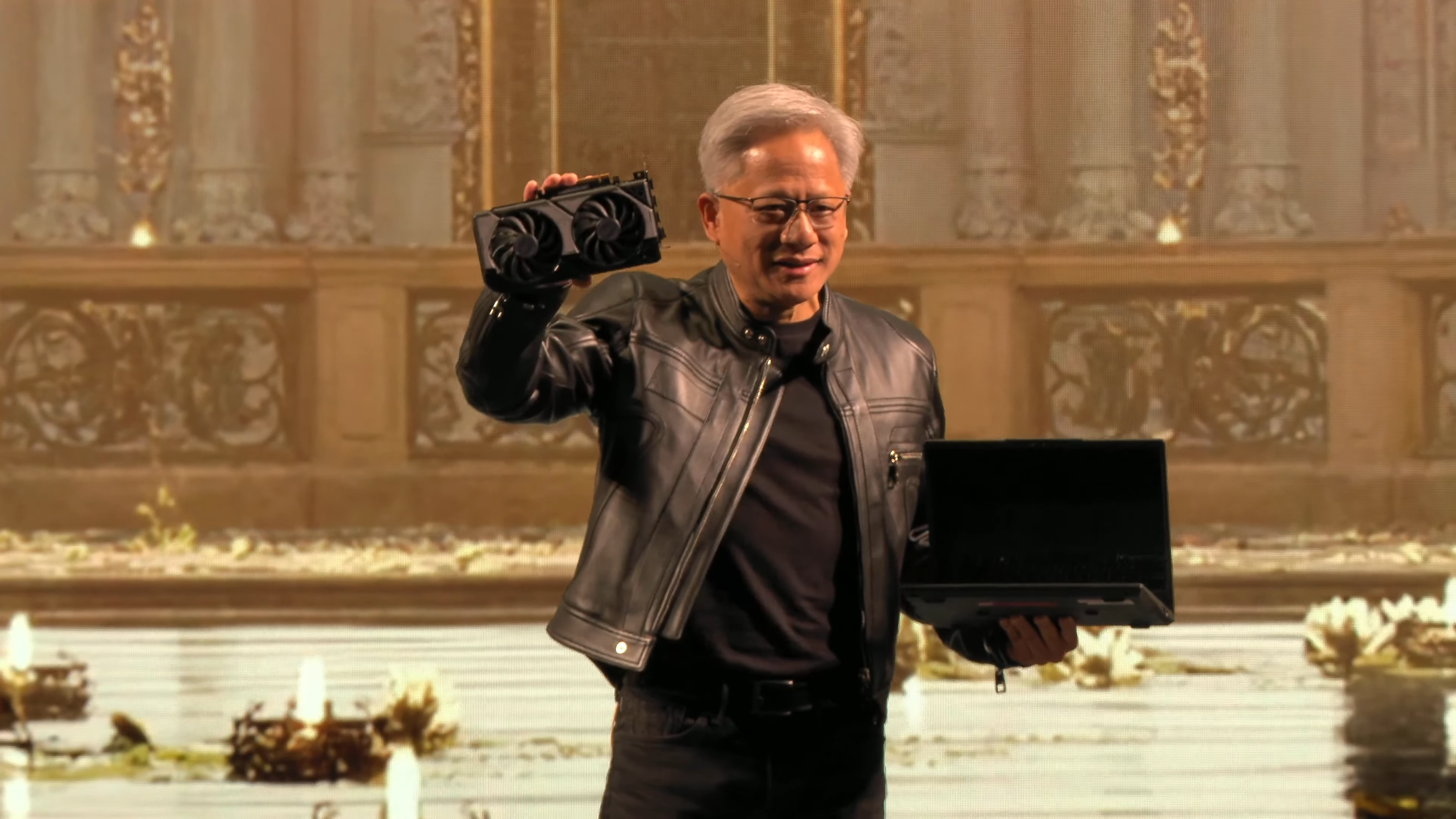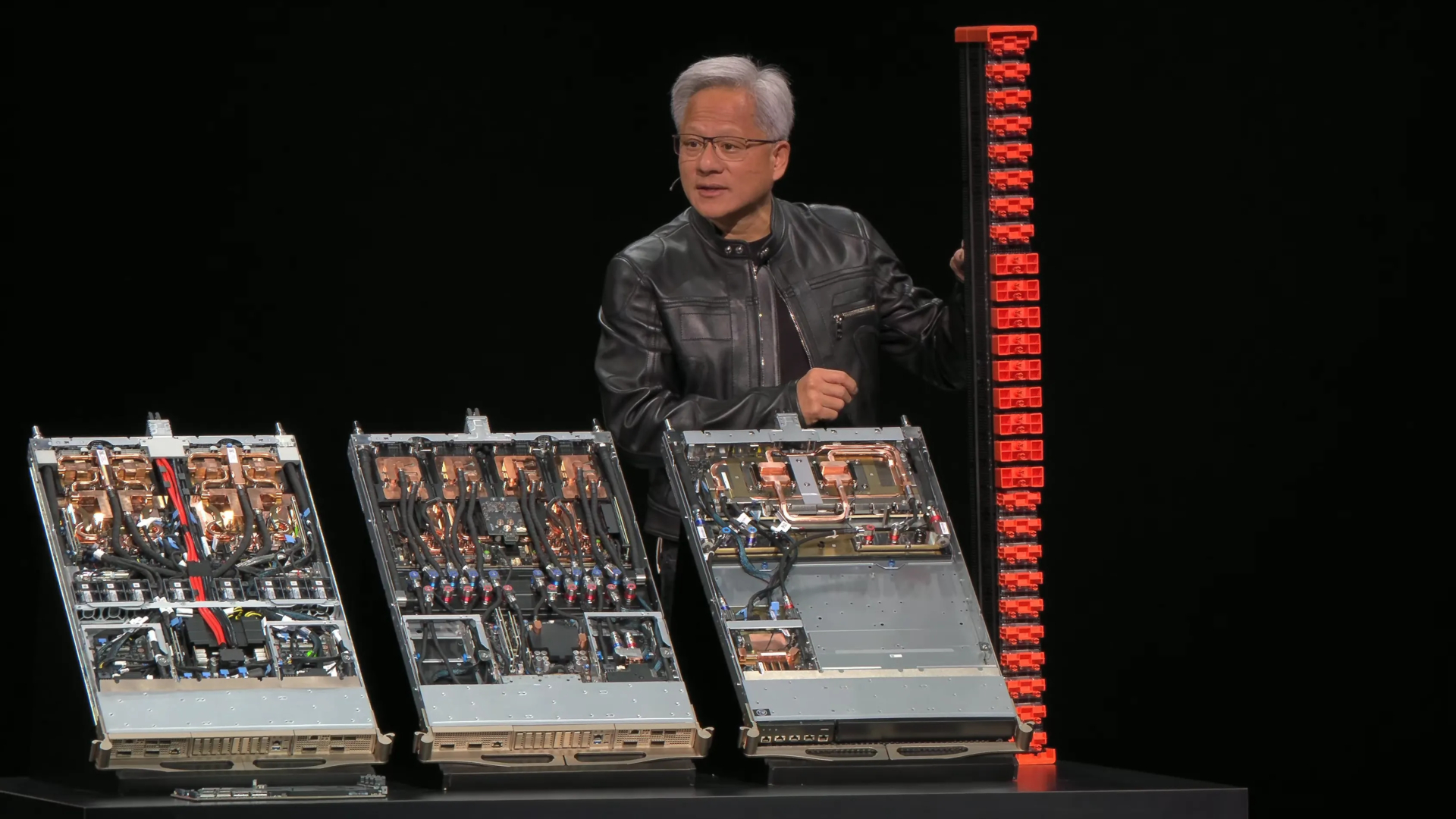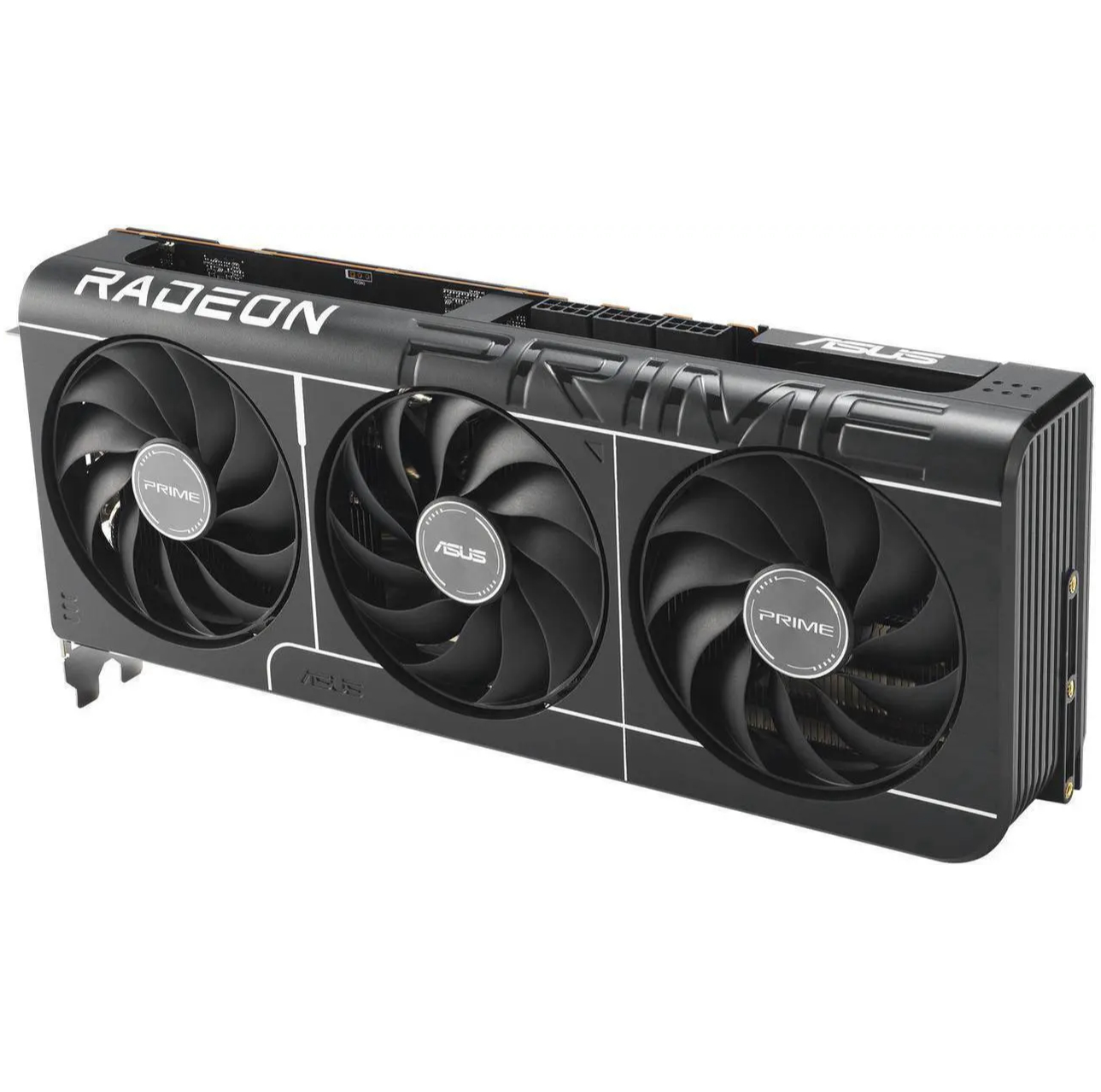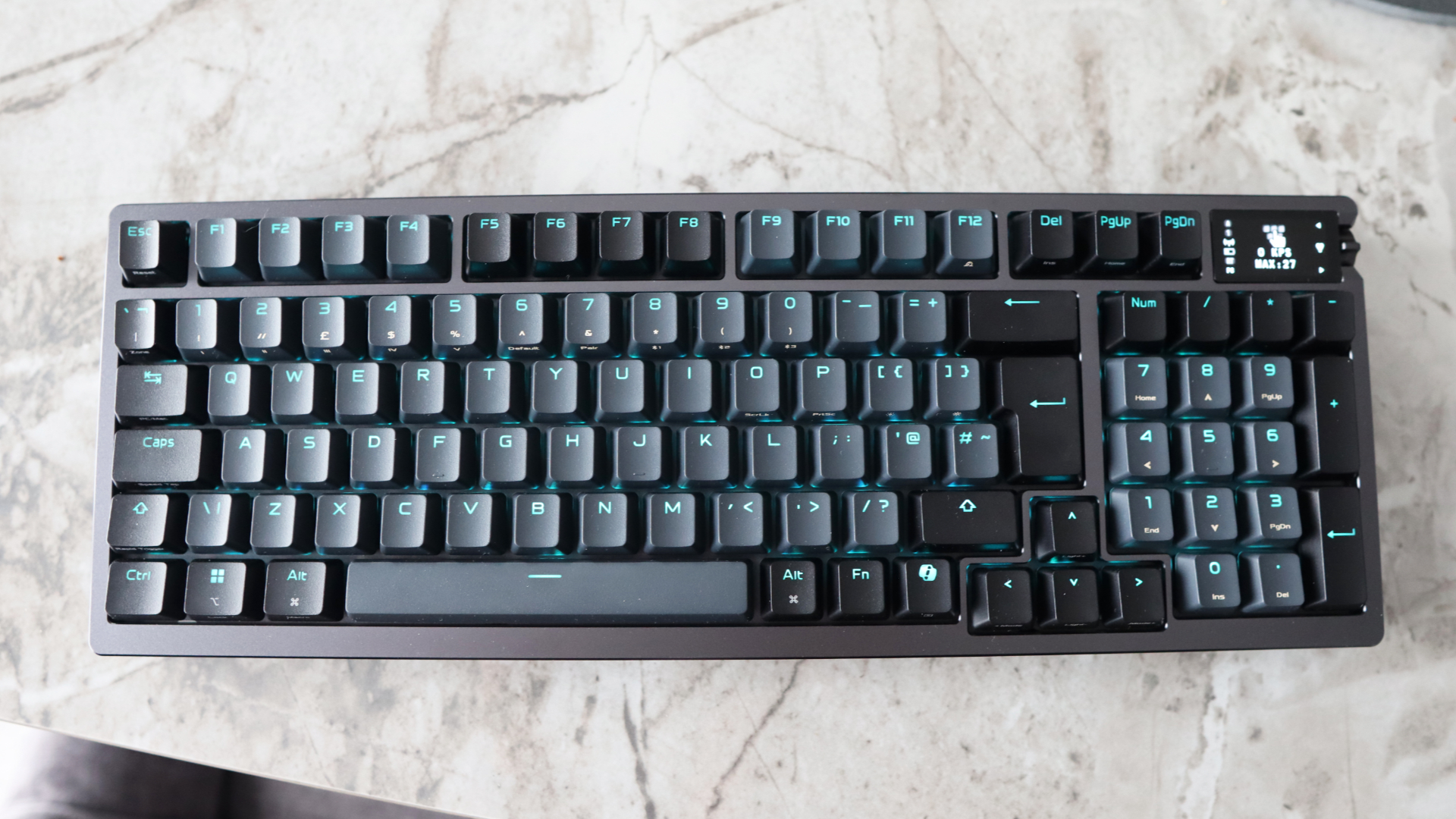'You can't raw dog it' says Nvidia CEO Jensen Huang: 'If you're not using AI, you're going to lose your job to somebody who uses AI'
'I'll be sure to go home and tell people, you're not gonna raw dog this.'

Amid the hubbub of the Washington DC AI summit earlier this week, in which President Trump unveiled a raft of AI policies and made some dubious statements about the future of power generation, it might have been easy to miss a livestreamed interview with Nvidia CEO Jensen Huang as part of the All-In Podcast. In a wide-ranging discussion, Huang took the opportunity to espouse some more of his thoughts on our bright new AI future, including how he sees it apply to "job displacement" in the future.
"AI is the greatest technology equaliser of all time. Everybody's a programmer now. You used to have to know C, and C++, and Python… y'know, everyone in the future can program a computer, right?" said Huang.
"Everybody is going to be augmented by AI. Everybody's an artist now. Everybody's an author now. Everybody's a programmer now. That is all true."
"We also know that… although everybody's job will be different as a result of AI, some jobs will be obsolete, but many jobs will be created. The one thing that we know for certain is that, if you're not using AI, you're going to lose your job to somebody who uses AI. That, I think, we know for certain. There's not a software programmer in the future who's gonna be able to hold their own typing by themselves."
"Yeah, you can't raw dog it, no", said one of the hosts. "No, not any more", Jensen laughed in response. "You can't raw dog it. I'll be sure to go home and tell people, you're not gonna raw dog this."

Huang's comments come mere days after similar statements from OpenAI CEO Sam Altman at the Capital Framework for Large Banks conference. "There are cases where entire classes of jobs will go away," said Altman, in a discussion involving the integration of AI into businesses, before talking about how AI bots working in call center support are now much better than humans performing the same role. It's not the analogy I would have picked, but still, he went there anyway.
Perhaps an AI suggested it? I suppose you could use a bot to create a better comparison, but I wouldn't really know, as I've got a funny feeling I'm one of the people Jensen's talking about in regards to being outpaced by my AI-augmented competition.
Keep up to date with the most important stories and the best deals, as picked by the PC Gamer team.
Later on in the podcast, Huang also spoke about Nvidia's current level of AI integration in its day-to-day operations, and as you might expect, it's immense:
"We use AI across the whole company," said the Nvidia chief. "Every single software engineer today uses AI, not one left behind. 100% of our chip designers use AI. We are busier than ever. And the reason for that is because we have so many ideas that we want to pursue, AI makes it possible for us to pursue those ideas now that we're not doing the mundane stuff."

Well, did you really expect anything less? Still, Huang makes a good point about just how many irons Nvidia has in its particular fire right now. Once a humble GPU company, Nvidia's lineup of research projects, initiatives, and platforms is simply mind-boggling.
From robotics to autonomous vehicle projects, data center GPUs to AI integrations into medical research, it's sure come a long way from churning out graphics cards for gamers alone, which I'd wager makes Huang one of the busiest CEOs on the planet right now.
Still, perhaps we shouldn't tell him the original definition of the phrase "raw dogging." I mean, given his laughter at its use, he may well know already, and I'm certainly not going to link it here. Just, y'know, look it up for yourselves if you're that interested. Or don't. Or better yet, ask an AI. The results should be amusing, at the very least.

1. Best overall: AMD Radeon RX 9070
2. Best value: AMD Radeon RX 9060 XT 16 GB
3. Best budget: Intel Arc B570
4. Best mid-range: Nvidia GeForce RTX 5070 Ti
5. Best high-end: Nvidia GeForce RTX 5090

Andy built his first gaming PC at the tender age of 12, when IDE cables were a thing and high resolution wasn't—and he hasn't stopped since. Now working as a hardware writer for PC Gamer, Andy spends his time jumping around the world attending product launches and trade shows, all the while reviewing every bit of PC gaming hardware he can get his hands on. You name it, if it's interesting hardware he'll write words about it, with opinions and everything.
You must confirm your public display name before commenting
Please logout and then login again, you will then be prompted to enter your display name.

